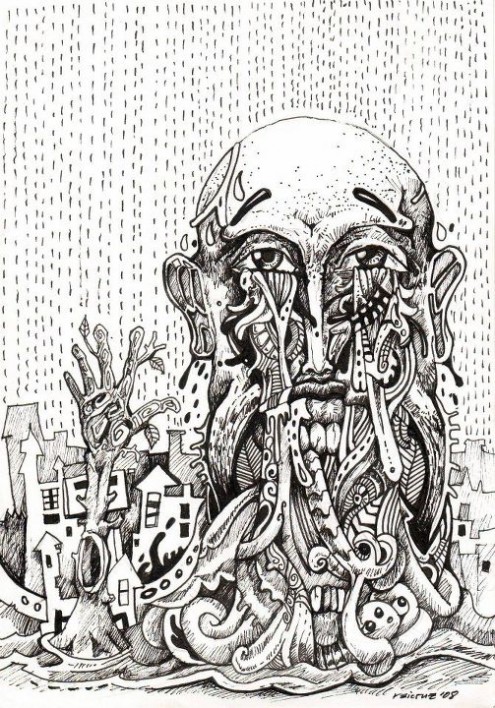FWP:
SETS == WORDPLAY
Nazm believes that Ghalib means to say that the companions disputed or cast doubt upon the effect of weeping. Thus he accuses Ghalib of having misused a common idiom in an obscure, almost incomprehensible way, because such a negative meaning could easily and colloquially have been achieved through kalaam karnaa , but can't be achieved through taqriir karnaa with anything like the same strength or legitimacy.
Bekhud Mohani (supported by Bekhud Dihlavi) is convinced that Ghalib means to say that the companions defended or affirmed the effect of weeping. Thus he finds Nazm's whole approach wrongheaded: the reason the poet didn't say kalaam was that he didn't mean kalaam , in its idiomatic negative sense; why should he be reproached for tampering with an idiom that he never meant to use in the first place?
But what the companions really did was converse, discuss, or speechify 'about' or 'on'-- literally 'in' [me;N]-- the subject of the effect of weeping. Surely it's not by accident that Ghalib hasn't specified exactly what they said about it. All we know is that they enjoyed their discussion (they were 'fine with' it-- or it was 'very well for them')-- while the lover himself was 'drowned' by it. Nothing in the verse invites Bekhud Dihlavi's and Bekhud Mohani's elaborate scenarios about the companions scoring (or not scoring) debating points in the presence of the beloved (although there's nothing against those scenarios either).
All we are really sure of is the fact of the discussion itself, and its effect on the lover. Perhaps some of the companions maintained that weeping is ineffective and vain-- and the lover's heart sank at the futility and uselessness of his one means of winning the beloved's attention. Others of them argued that weeping can't fail to have an effect-- and the lover's heart sank at the realization that he alone is cursed with uniquely ineffective tears, and that no one understands the true wretchedness of his plight. Or perhaps it was merely the discussion itself-- the light-hearted treatment of a topic so dire, the outflow of casual words going on and on, people laughing and scoring points-- while the lover himself was in the grip of mortal suffering.
In any case, the result is the same: the discussion, so enjoyable
for everybody else, has ultimately ruined or exhausted or, in an elegant bit of wordplay that is surely the origin of the verse,
'drowned' the lover. The lover is 'drowned' by mere discussion of tears--
how vulnerable he must be to the tears themselves! Adding to the wordplay
is the reference to the companions as 'breath-sharers' [ham-nafas]
and the fact that the root of taqriir is qarr
, 'to pour' (Platts p.330) (though I don't know whether this derivation would
have sprung readily to mind). The flow or torrent of speech, with its expenditure of 'breath' ('Don't waste your breath!'),
is a source of lively pleasure and a sign of vitality to others. But it's something
that can 'drown' the lover-- and deprive him of the small amount of 'breath'
that he still has left.

Nazm:
The idiom is amar me;N kalaam hai , that is, 'we don't believe it'. The author has used it in such a way that in place of kalaam he has said taqriir ; and from using the idiom in this way, no meaning remains. (176)
== Nazm page 176